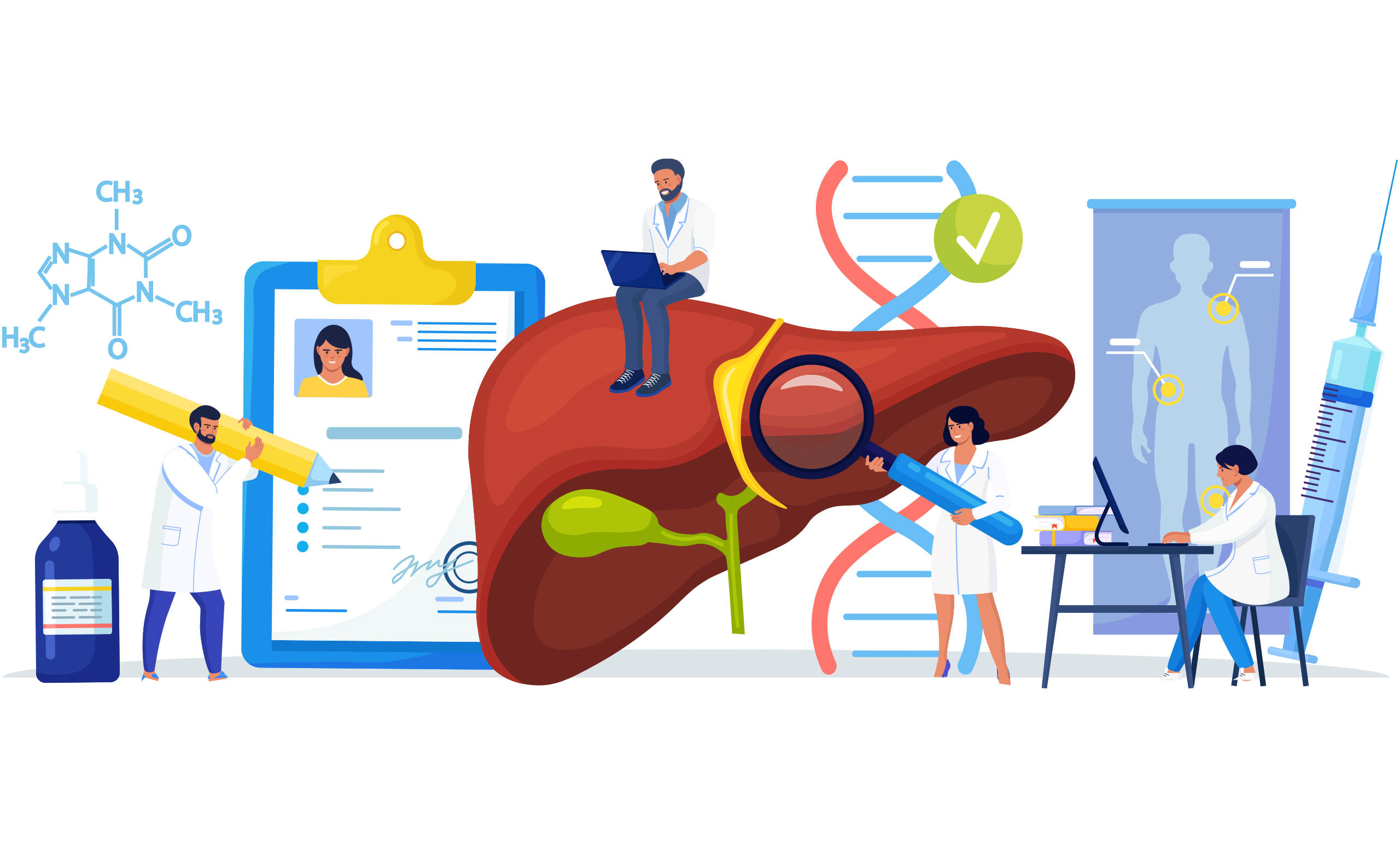Every October, Liver Cancer Awareness Month brings attention to one of the deadliest cancers affecting thousands worldwide. This month represents a vital opportunity to educate people about the symptoms of liver cancer, its causes, and the importance of early detection. In addition, we aim to highlight how hospice care provides dignity and comfort during a person’s final stages of liver cancer.
A Comprehensive Path from Diagnosis to Hospice Care
Liver cancer, known medically as hepatocellular carcinoma, is often linked to chronic liver conditions like cirrhosis or hepatitis B and C infections. Specifically, hepatitis B is a leading cause of liver cancer. It can silently damage the liver over time, leading to cancer in some cases. Unfortunately, liver cancer is usually diagnosed in later stages when the symptoms become more pronounced, making treatment more difficult.
Common liver cancer symptoms include:
Because liver cancer progresses quickly, these symptoms often indicate that the disease has reached an advanced stage. By this point, patients may face a more challenging prognosis, and families could consider end-of-life care options.
The Role of Hospice Care in Liver Cancer
As liver cancer progresses to the final stages, patients may struggle with debilitating symptoms such as severe pain, nausea, or difficulty breathing. Hospice care becomes a compassionate option at this stage, focusing on comfort rather than cure. The goal is to improve the quality of life for patients and support their families emotionally and physically.
Hospice care providers, including doctors, nurses, counselors, and therapists, work together to manage pain and symptoms. For liver cancer patients, this team offers:
A fundamental principle of hospice is to allow patients to live their remaining days with dignity. This often means receiving care at home, surrounded by loved ones, where they feel most comfortable. For many families, hospice means a physical relief for their loved one and an ease to the harsh emotions during such a difficult time.

“Addressing Disparities in Liver Cancer Care”
The Global Liver Institute (GLI) has highlighted the significant disparities in liver cancer care, especially among minority populations. Their #OctoberIs4Livers campaign continues to push for equity in healthcare access, with a particular focus on liver cancer awareness in underserved communities. This year’s theme, “Addressing Disparities in Liver Cancer Care,” focuses on connecting diverse populations to improve understanding, early detection, and treatment.
Raising awareness about liver cancer is especially important in communities where chronic conditions like hepatitis B are prevalent. By increasing access to education and healthcare resources, we can reduce the risk of late-stage diagnoses, giving patients a better chance of survival.
The Key to Prevention
Early detection is critical in the fight against liver cancer. Routine screenings for hepatitis B are essential because the infection can lead to liver cancer if left untreated. Screening at-risk individuals, including those with a history of hepatitis B or other liver conditions, can catch the disease before it reaches advanced stages.
It is paramount to remember that while not everyone with hepatitis B will develop liver cancer, early management of the virus can significantly reduce the risk. Many people can prevent their condition from escalating through proper treatment and lifestyle changes.
Liver cancer is unique in that many of its causes, like hepatitis B, are preventable or manageable. That’s why screening and vaccination programs, particularly in high-risk areas, are critical components of any public health strategy aimed at reducing liver cancer rates.
The Emotional and Physical Toll of Liver Cancer
The journey from liver cancer diagnosis to passing is often physically and emotionally challenging for both patients and their families. Patients may experience:
For family members, watching a loved one decline can be heartbreaking. Hospice care offers support to ease these emotional burdens by providing counseling and resources to help families understand the progression of the disease. Families are also taught how to care for their loved ones during this time, ensuring patients are as comfortable as possible.

Why Hospice Care is Essential
For end-stage liver cancer patients, hospice care focuses on comfort, not on extending life through aggressive treatments. This shift in care is essential, especially when no more curative options exist. Hospice teams create personalized care plans to manage each patient’s symptoms, including pain, nausea, and fatigue, while addressing emotional and spiritual needs.
Hospice care also extends beyond the patient. It provides a collaborative support network that includes emotional and practical assistance for family members. This support is invaluable as families face the inevitable loss of their loved ones, and it helps them feel more prepared for the road ahead.
The Importance of Awareness and Advocacy
October is a time to reflect on those who have been affected by liver cancer, and it is also an opportunity to advocate for better awareness and early detection efforts. This year’s focus on addressing disparities in liver cancer care highlights the need for equitable healthcare access for all communities. By spreading awareness through campaigns like #OctoberIs4Livers, we can ensure that individuals at risk of liver cancer receive the information and resources they need.
Liver Cancer Awareness Month reminds us that liver cancer can affect anyone, and hospice care offers paths to improved quality of life and compassionate end-of-life care. At Ascend Hospice Care, we are dedicated to providing the highest standards of care for patients with liver cancer, ensuring that patients and families are adequately supported.
As we move through this month, let’s unite to advocate for better liver health, early detection, and quality care for all individuals battling this disease. By raising awareness and supporting those in need, we can make a significant difference in the lives of those affected by liver cancer. Through hospice care, liver cancer patients can experience dignity, comfort, and support during their final days, surrounded by the love of their families.




